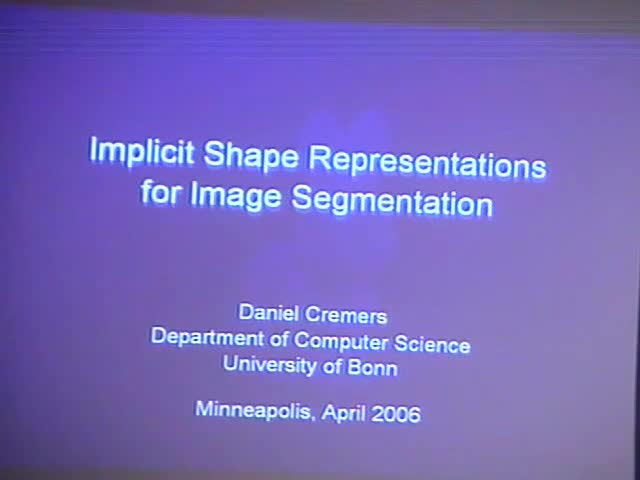Abstract
Implicit (level set) representations of shape are known to have several
advantages over explicit ones. In particular they do not rely on a specific
choice of parameterization and they naturally allow for topological changes
of the embedded shapes. In my presentation, I will summarize some recent
advances regarding metrics on implicit representations, nonparametric and
dynamical shape models for implicit representations, and statistical
inference of shapes within a Bayesian framework for segmentation and
tracking. These allow, for example, to infer temporally consistent
segmentations of an image sequence by computing the most likely embedding
function given an input image, and given the embedding functions computed
for the previous images.
